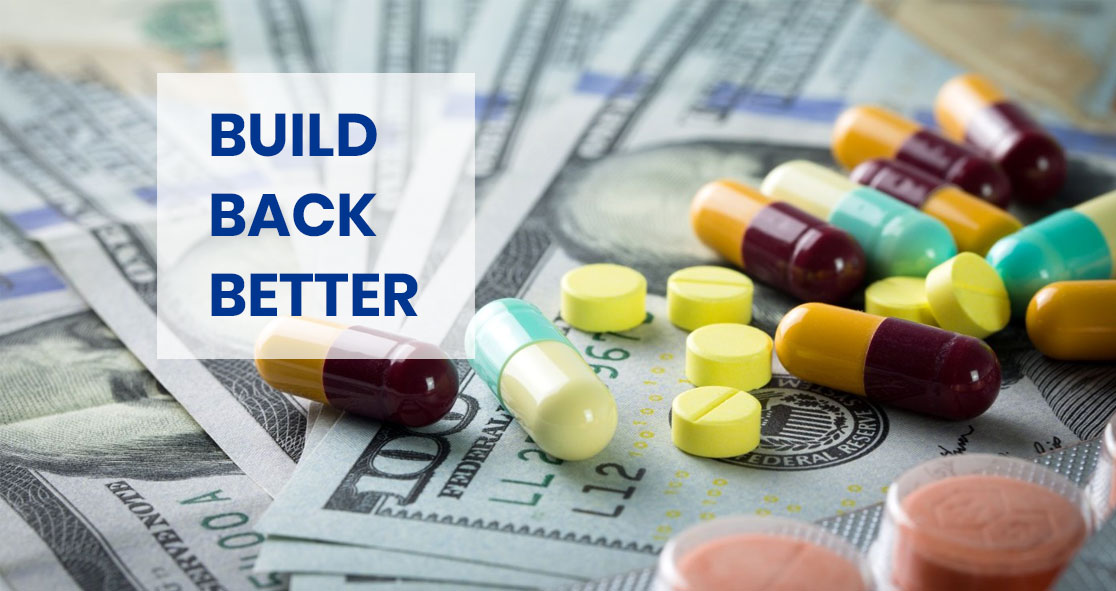In the United States, high prescription drug prices are affecting people so much that they are skipping their treatments.
President Joe Biden has been saying that controlling drug prices is the key to this dilemma. His administration’s Build Back Better (BBB) proposal, which is now stalled, has several provisions to reduce the price of prescription drugs with a primary focus on Medicare.
However, some experts, like Dr. Kenneth Thorpe of Emory University, said the list price of medicine is not the problem, according to The Deseret News.
He said, “I think the overall focus on drug prices has been wrong. That’s important for Medicare perhaps, but to me, the real focus should be on patients and what they pay out of pocket.”
When Americans cannot afford to take their life-saving prescription drugs and skip their treatments, it is bad for the nation’s healthcare system.
Daniel Liljenquist, lead architect and Board Chair of Civica Rx, said most players are putting their hands in the money stream as medicine makes its way to consumers.
Civica is a new nonprofit generic drug company established to reduce chronic generic drug shortages and price gouging,
Liljenquist told The Deseret News, “Pharmacy benefit managers, wholesalers, retailers, payers, and employers all have their hand a little bit in the supply chain.”
In recent years, many pharmaceutical companies have raised the price of their medicines as they wish. Several pharmaceutical companies raised drug prices by 6.6% in the first few weeks of 2022. Overall, nearly 150 companies raised prices on more than 860 products through January 20.
Meanwhile, it seems like Pharmacy Benefit Managers (PBMs) are tilting the market, 80% of which is controlled by three major PBMs – Express Scripts, CVS Health, and OptumRx of UnitedHealth Group – in their own and unusual ways.
One of the effective ways to drop drug prices is the availability of cheaper generic versions. However, it has been found that drug companies are keeping costs high to prevent their drugs from becoming generics.
The BBB proposal includes significant price reforms for skyrocketing costs for Medicare. It would reduce prescription costs at $2,000 a year for Medicare beneficiaries. The proposal would also require companies that raise prices above the inflation rate to pay rebates to the federal government.
The act would let Medicare negotiate prices on some of the high-priced drugs. For instance, the cost for insulin would be capped at $35 a month according to one of the provisions of the BBB act.
In January, Xavier Becerra, the Health and Human Services Secretary, told the Centers for Medicare and Medicaid Services to reassess the premium increase it announced this year for Medicare recipients, a $22 a month hike, according to The Deseret News.
He suggested that reducing the price should result in some savings to Medicare recipients.
However, Dr. Thorpe does not believe the challenge is really drug prices. He said the bigger problem is the burden placed on patients to buy their prescriptions.
“The easiest way to deal with it is to cap what patients pay out of pocket for drugs. The Biden proposal is a $2,000 cap, but that’s still too high,” he added.
Liljenquist said Intermountain Healthcare approached Civica to ensure that essential, quality medicines are available and affordable to everyone, focusing on the generic drug market. Drug companies had cornered the generic drug market and increased prices.
He said, “It’s one thing for innovators to create new drugs and have the ability to make those drugs for a protected period of time as they get rewarded for their innovation. But once those drugs pass their patented life, they should be in the public domain. Those formulas are really owned by society.” For more information, check the article titled “Why some Americans ration or skip their medication and what Congress could do to help,” published Monday on The Deseret News.























